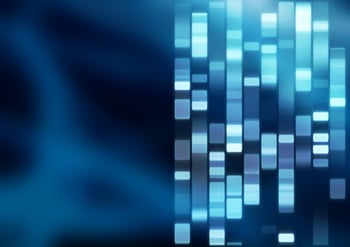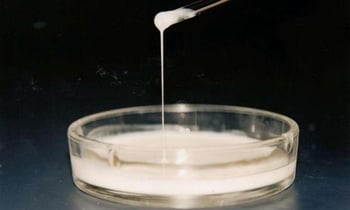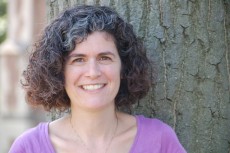 Washington State University, in collaboration with a genetics testing company in India, is providing cancer patients with comprehensive testing for determining effective prostate and breast cancer treatments.
Washington State University, in collaboration with a genetics testing company in India, is providing cancer patients with comprehensive testing for determining effective prostate and breast cancer treatments.
Tags: Washington, WSU Pullman, Microbiology, WA, cancer research, WSU, Washington State University, Cancer Treatment, pharmaceutical, 2015, Biomarkers, Genetics, Northwest Region, Pullman, BioResearch Product Faire™
 Microbiologists at Oregon State University have discovered and are licensing a new type of natural polymer dairy or food thickener called Ropy 352.
Microbiologists at Oregon State University have discovered and are licensing a new type of natural polymer dairy or food thickener called Ropy 352.
Tags: Bioresearch, Oregon State University, food science, Microbiology, Oregon, 2015, BioResearch Product Faire Event, OR, Corvallis, Northwest Region, ORSTU
The American Society for Microbiology released a study that showed some interesting results about whether or not people are actually washing their hands. Here are some results of the findings.
Read MoreTags: CA, Microbiology, California, 2015, Chemicals, UCDMC, BioResearch Product Faire Event
When it comes to fighting bacteria, it’s all about understanding the enemy. Bacteria are especially good at rapidly dividing; in fact, they are more efficient than cells at self-replication. Microbiologists at the Washington University, St. Louis decided to go straight to the root of the problem and find out how to turn bacteria into zombies that can’t reproduce.
 The first step in shutting down bacterial replication was determining just why bacteria are so good at it, instead of just taking the fact for granted. Petra Levin (left), associate professor of biology at WUSTL, notes that “people spoke of the bacterial cell cycle as somehow magically coordinated even though there was no mechanism for doing so. Things just somehow worked out fine even though no control system had been identified.”
The first step in shutting down bacterial replication was determining just why bacteria are so good at it, instead of just taking the fact for granted. Petra Levin (left), associate professor of biology at WUSTL, notes that “people spoke of the bacterial cell cycle as somehow magically coordinated even though there was no mechanism for doing so. Things just somehow worked out fine even though no control system had been identified.”
Tags: Washington University St. Louis, Missouri, WashU, Microbiology, 5-Star Program
 In order for HIV to proliferate and infect new cells in the body, a number of proteins need to interact with each other in just the right way. If they don't, the virus is not able to multiply and spread, and HIV infection cannot develop into full-blown Auto Immune Deficiency Syndrome (AIDS). It's a case of finding a weak link and exploiting its potential to disrupt an entire supply chain. In the University of Pittsburgh microbiology lab of Dr. Thomas Smithgall, this protein sabotage approach has successfully allowed them to identify a helper molecule that, if compromised, could form the basis of an effective new HIV/AIDS treatment therapy. The paper documenting their research appeared in the January 24 issue of Chemistry & Biology.
In order for HIV to proliferate and infect new cells in the body, a number of proteins need to interact with each other in just the right way. If they don't, the virus is not able to multiply and spread, and HIV infection cannot develop into full-blown Auto Immune Deficiency Syndrome (AIDS). It's a case of finding a weak link and exploiting its potential to disrupt an entire supply chain. In the University of Pittsburgh microbiology lab of Dr. Thomas Smithgall, this protein sabotage approach has successfully allowed them to identify a helper molecule that, if compromised, could form the basis of an effective new HIV/AIDS treatment therapy. The paper documenting their research appeared in the January 24 issue of Chemistry & Biology.
Tags: 2014, 2013, University of Pittsburgh, Pennsylvania, Northeast, AIDS Research, Microbiology, UPITT, BioResearch Product Faire Event, PA, Pittsburgh

